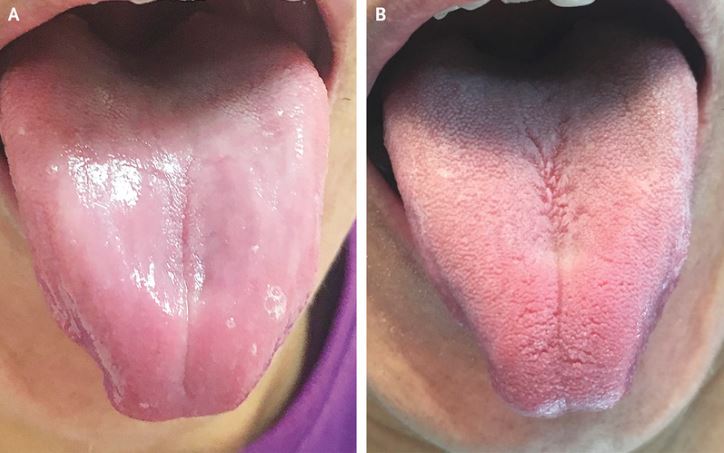Why Did This Man's Taste Buds Disappear?
His tongue's strange appearance would turn out to be a sign of an underlying blood condition.

Get the world’s most fascinating discoveries delivered straight to your inbox.
You are now subscribed
Your newsletter sign-up was successful
Want to add more newsletters?

Delivered Daily
Daily Newsletter
Sign up for the latest discoveries, groundbreaking research and fascinating breakthroughs that impact you and the wider world direct to your inbox.

Once a week
Life's Little Mysteries
Feed your curiosity with an exclusive mystery every week, solved with science and delivered direct to your inbox before it's seen anywhere else.

Once a week
How It Works
Sign up to our free science & technology newsletter for your weekly fix of fascinating articles, quick quizzes, amazing images, and more

Delivered daily
Space.com Newsletter
Breaking space news, the latest updates on rocket launches, skywatching events and more!

Once a month
Watch This Space
Sign up to our monthly entertainment newsletter to keep up with all our coverage of the latest sci-fi and space movies, tv shows, games and books.

Once a week
Night Sky This Week
Discover this week's must-see night sky events, moon phases, and stunning astrophotos. Sign up for our skywatching newsletter and explore the universe with us!
Join the club
Get full access to premium articles, exclusive features and a growing list of member rewards.
When a 64-year-old man stuck out his tongue for a physical exam, doctors could immediately tell something was off: Instead of a typical, textured tongue, his was smooth and shiny. It didn't take long for them to recognize why: The man's taste buds were missing.
His tongue's strange appearance would turn out to be a sign of an underlying blood condition that required a relatively simple treatment, according to a new report of the case.
The man, who lives in Singapore, went to the doctor after he experienced pain and redness in his tongue along with a burning sensation around his lips, which had lasted six months, according to the report, published today (Oct. 16) in The New England Journal of Medicine.
Doctors from the National University of Singapore observed that the man's glossy tongue was missing "papillae," the small bumps on the tongue that often contain taste buds.
The man's symptoms fit a condition called atrophic glossitis, or inflammation of the tongue that leads to changes in color and texture, including the loss of many papillae, according to Healthline.
But what had caused the atrophic glossitis? Blood tests revealed an important clue: The man's levels of vitamin B12 were very low.
He was diagnosed with pernicious anemia, a condition in which a person has low levels of red blood cells due to a deficiency in vitamin B12. In some cases, people develop pernicious anemia because their immune system attacks a protein needed for the absorption of vitamin B12. Indeed, further tests showed the man had the autoimmune form of the condition.
Get the world’s most fascinating discoveries delivered straight to your inbox.
Red blood cells contain a protein called called myoglobin that is important for the health of muscles, including the tongue muscle, according to Healthline.
Fortunately, pernicious anemia is usually easy to treat, according to the National Institutes of Health. Patients receive large doses of vitamin B12 in the form of shots or high-dose pills.
In the man's case, he received shots of vitamin B12, and within one month, his tongue was back to normal. He will continue to need regular vitamin B12 shots to keep him from developing a vitamin B12 deficiency.
- 27 Oddest Medical Case Reports
- 11 Surprising Facts About the Immune System
- 7 Strange Signs You're Having an Allergic Reaction
Originally published on Live Science.


Rachael is a Live Science contributor, and was a former channel editor and senior writer for Live Science between 2010 and 2022. She has a master's degree in journalism from New York University's Science, Health and Environmental Reporting Program. She also holds a B.S. in molecular biology and an M.S. in biology from the University of California, San Diego. Her work has appeared in Scienceline, The Washington Post and Scientific American.
 Live Science Plus
Live Science Plus










